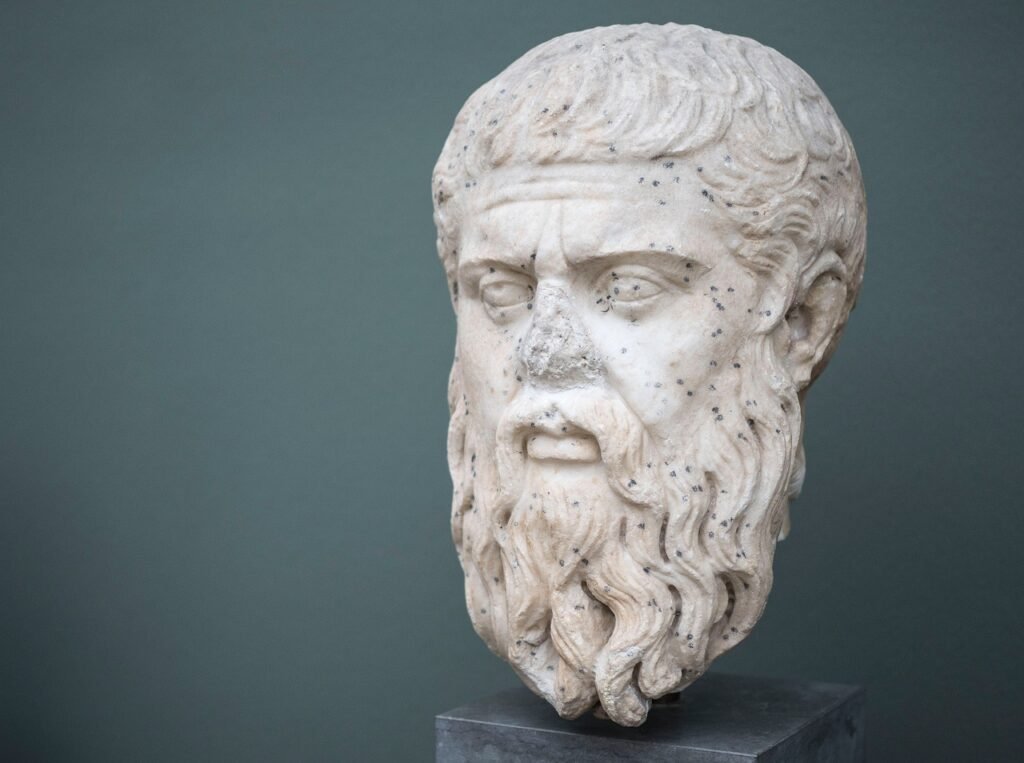Plato, a foundational figure in Western philosophy, was a student of Socrates and the teacher of Aristotle. Here are some key facts about him:
- Early Life: Plato was born circa 427 or 428 BCE in Athens, Greece, into an aristocratic family. His birth name was Aristocles, but he was later nicknamed “Plato,” meaning “broad” or “wide,” possibly due to his robust physique or his broad-ranging intellect.
- Student of Socrates: Plato was a student of the philosopher Socrates, and much of his philosophical work is influenced by Socratic teachings. He was deeply inspired by Socrates’ method of questioning and his emphasis on ethics and self-examination.
- The Academy: Plato founded the Academy in Athens around 387 BCE, one of the earliest known institutions of higher learning in the Western world. The Academy served as a centre for philosophical inquiry and education for several centuries and had a significant impact on the development of Western philosophy.
- Dialogues: Plato’s philosophical ideas are primarily known through the dialogues he wrote, featuring Socrates as the central character. These dialogues explore a wide range of topics, including ethics, politics, metaphysics, epistemology, and the nature of reality.
- Theory of Forms: One of Plato’s most influential and enduring theories is the theory of Forms (or Ideas). According to this theory, the physical world is a mere reflection or imperfect copy of a higher realm of timeless, immutable Forms, which represent the true essence or reality of things.
- Allegory of the Cave: In Plato’s famous allegory of the Cave, from his work “The Republic,” he describes a group of people who are chained inside a dark cave, facing a blank wall. They perceive only the shadows of objects passing by a fire behind them, and they mistake these shadows for reality. The allegory serves as a metaphor for the journey of enlightenment and the pursuit of philosophical truth.
- Philosopher-King: In “The Republic,” Plato presents the idea of a philosopher-king, a ruler who possesses wisdom, knowledge, and a deep understanding of justice. According to Plato, only such individuals are fit to govern a just and harmonious society.
- Legacy: Plato is considered one of the most influential philosophers in Western history. His ideas have had a profound impact on the development of philosophy, science, politics, and religion, shaping the intellectual landscape of the Western world for centuries.
- Death: Plato died circa 347 or 348 BCE in Athens at the age of around 80. He left behind a rich legacy of philosophical writings and ideas that continue to be studied and debated by scholars and philosophers around the world.
- Platonic Love: Plato’s writings also introduced the concept of “Platonic love,” which refers to a deep and non-sexual bond or affection between individuals. This idea has had a lasting influence on Western notions of love and friendship.
